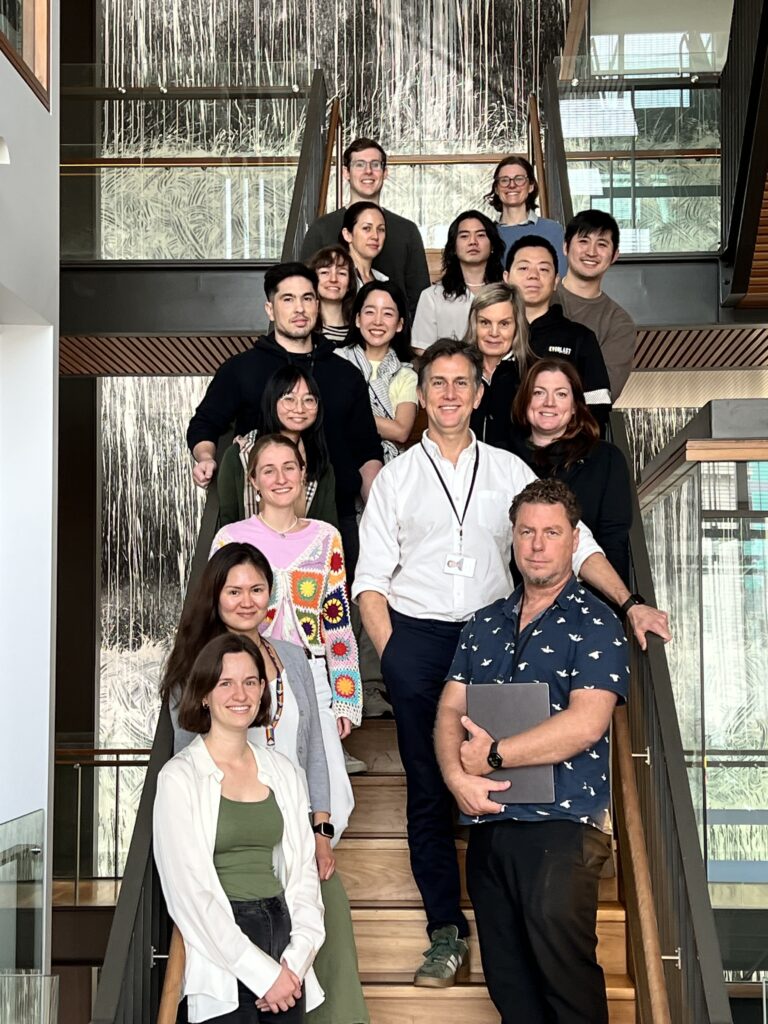Share
Triple negative breast cancer (TNBC) is an aggressive form of breast cancer that currently lacks targeted therapies. While immunotherapy drugs have led to major advances in treating several cancers, they have had limited success in TNBC. Researchers are gaining a deeper understanding of why some cancers are resistant to treatment, and evidence is emerging that B cells, an often-overlooked type of immune cell, may play a crucial role in this resistance.
At the Garvan Institute of Medical Research, Dr Louise Baldwin is leading an innovative research project, supported by a grant from St Vincent’s Clinic Research Foundation and mentored by Professor Alexander Swarbrick. This project is investigating how B cells contribute to whether TNBC responds to or resists immunotherapy. By utilising cutting-edge sequencing tools and mouse models, the researchers aim to gain a deeper understanding of the immune system and pave the way for enhanced treatment options.
Although the research is still ongoing, Dr Baldwin and the team made significant progress during the grant period. One major milestone was the development of a specialised surgical technique to remove a lymph node in the mammary gland of mice before tumour cell transplantation. This breakthrough enables researchers to track how B cells move from the lymph node to the tumour site, offering valuable insight into how immune cells behave within the tumour environment.
The team collaborated closely with the Garvan Cellular Genomics Platform to implement a cutting-edge technique known as on-chip multiplexing (OCM). This approach allows them to include more samples and capture more cells without added cost, making the research more efficient and impactful. Working with the Garvan Immunology Division, they also refined a laboratory method to identify T and B cells that have already responded to disease, providing a more accurate and detailed picture of immune cell behaviour.
The final phase of experiments is nearing completion, with publication of the findings expected soon after. This study represents the first targeted multiomic analysis of B cells in response to immunotherapy at both the tumour and lymph node level in triple-negative breast cancer. The insights gained may lead to new strategies for engaging the immune system and improving outcomes for patients with this challenging cancer.

The grant has also provided critical support for Dr Baldwin’s career development as an early-career researcher. “This grant has been an important stepping stone for my career, enabling new research and strengthening my competitiveness for future funding,” said Dr Baldwin.
Professor Swarbrick highlighted the broader value of the grant, both in advancing cancer immunology and in fostering emerging talent. “This support allowed us to initiate a novel research program in a poorly explored area. Dr Baldwin has led this work with great skill and vision. We are extremely grateful to the Foundation for enabling this project and supporting the next generation of research leaders.” said Prof Swarbrick
St Vincent’s Clinic Research Foundation acknowledges the Gadigal and Bidjigal peoples of the Eora Nation as the Traditional Custodians of the land on which we stand, and we pay our respects to Elders past, present, and emerging.